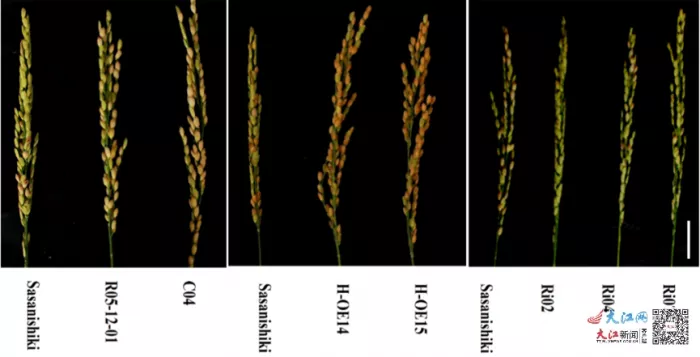Although rice is a crop that can adapt to high temperature, the extreme high temperature climate will still seriously affect the yield of rice. Therefore, the increase of temperature caused by global warming has become the main abiotic stress factor restricting the increase of rice yield. On May 7, the reporter noted that researchers of Jiangxi Academy of Agricultural Sciences recently identified a new rice high temperature tolerance gene hth5 in wild rice.
This achievement provides gene reserve and material basis for molecular improvement of rice high temperature tolerance breeding. Relevant research results take associate researcher Cao Zhibin as the first author and published a research paper entitled "natural variation of hth5 from wild rice, Oryza rufipogon Griff., is involved in conflicting high temperature tolerance at the heading stage" online in the internationally renowned Journal of Botany plant biotechnology journal.
It is reported that the researchers are in Oryza rufipogon Griff QTL qhth5, a heat-resistant trait at heading stage, was located on chromosome 5, and hth5 gene was further cloned from near isogenic line population.

Hth5 improves heat tolerance (seed setting rate) of rice at heading and flowering stage
Why can hth5 gene make rice resistant to high temperature? It is reported that hth5 gene belongs to the pyridoxal phosphate binding protein plpbp family, which predicts to encode the pyridoxal phosphate homeostasis protein (plphp) located in mitochondria. Overexpression of hth5 can increase the seed setting rate of rice plants under high temperature stress at heading stage, while inhibition of hth5 gene will increase the sensitivity of rice to heat stress. Further studies showed that hth5 reduced the accumulation of reactive oxygen species at high temperature by increasing the content of heat induced pyridoxal phosphate, so as to improve the high temperature tolerance of rice pollen and improve the seed setting rate (yield).
In addition, two SNPs located in the hth5 promoter region were associated with their gene expression level and heat tolerance. This study revealed the great potential value of hth5 gene in improving heat tolerance of rice.